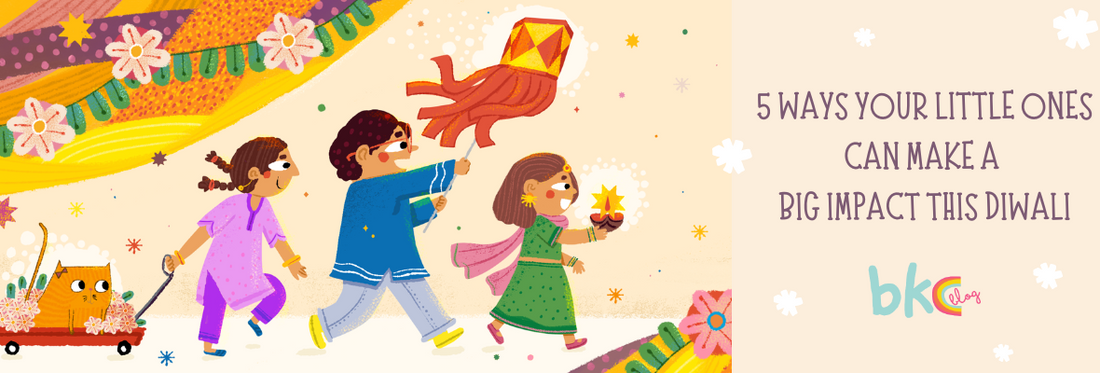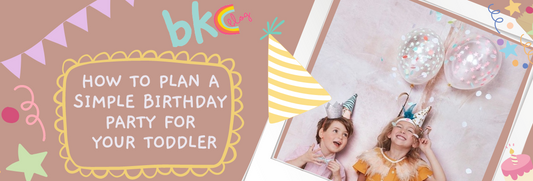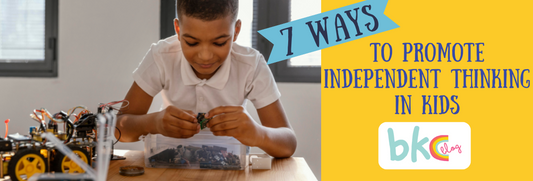Let this Diwali be the season when you start teaching your child about empathy. We’ve listed down five activities for your little one to begin practising kindness and mindfulness at home.

Raising a kind and conscious child is a process. Both are qualities that a child develops over a span of many years. It starts from practising small acts of kindness to unlearning toxic habits received from previous generations. Research shows that regularly experiencing another person’s perspective helps cultivate empathy as a natural reflex in children.
As a parent, it is essential that you provide the best opportunities for your child to practise kindness with, but not limited to, fellow beings. This festive season, we have listed down a few activities that will encourage your child to be conscious and kind.
1. Hand-crafted Diwali

If your kid loves to create hand-crafted gifts for their loved ones, encourage them to create a Diwali-themed greeting card. What is needed: some high-quality, easy-to-use, and mess-free colours like these and paper. If you have family members living far from home, send the final artwork to them via a trusted courier service to make them feel special.
2. Chores to Community Service

Studies suggest that babies are innately sociable and helpful to others. Encourage your little one to help out in any way they can – after all, the spirit of the festival is in offering. Start small; ask them to help you or any other family member around the house with things like drying laundry, wiping clean plates, setting the dinner table, etc.
Once they are comfortable with small chores in the house, take them to food shelters, orphanages, or old-age homes and teach them about community service. It is the best way to give back and the smallest of hands can be of the biggest help.
3. Instil Energy Consciousness
Lighting your home up during Diwali could be a fun tradition for your little one – fairy lights on the windows, lights in the living room, and even diyas on your front door. However, it is equally important to teach your child about energy consumption and the impact it has on our planet.
Instead of using electricity, you could opt to light up your home with diyas and candles. You could also start a new tradition with your little one by switching the lights off for an hour or two the week after Diwali.
4. Make Your Own Eco-friendly Rangoli!

You can download and print a toddler-friendly rangoli design here. Fold and cut along the marked lines.
Commercially available rangoli powders are often loaded with toxic substances that are neither good for your child’s skin nor the environment.
Instead of using these, you could either opt for flower petals or non-toxic Chalk-O-Rama Dustless Chalk for your rangoli.
If you’re going with flowers, you could guide your child to place the flowers once a rough pattern is sketched on the floor. The flowers can be easily disposed of in your compost bin when the celebrations are over.
If you’re using chalk, you could use the stencil to trace your rangoli pattern on the designated area. The chalk marks can be easily wiped off with a wet cloth.
5. Be There Furr Your Four-legged Friends!
Festivals cause a lot of stress for animals. Animals are often left frightened, injured, or lost at that time of year. Because of their heightened sense of hearing, many animals flee in search of a safe haven when experiencing loud noises.
This Diwali, explain to your child about noise-free celebrations and how they can help animals. You could use books – such as Cat's Diwali – to narrate things from a pet’s point of view.

Simultaneously, be there for the pets at home – keep them in a quiet room, close the windows and draw the curtains shut, play some calming music, and take good care of them. The festivals, in particular, affect stray animals. So provide them shelter, if possible, where they may be safe from the firecrackers and the noise.
It’s best these activities are not limited to the festive season; but become good habits for your child to practice in their day-to-day life.
Being kind and conscious is a slow process with longstanding benefits that extend to your child’s adult life. In most cases, children acquire these qualities from their parents. Your child follows your lead; ensure that you continue to model the behaviour you want them to follow.





